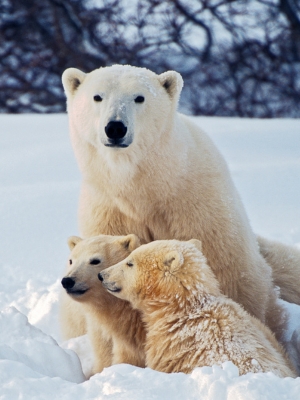The Big Cat Public Safety Act (BCPSA) was signed into law in January 2023, after over a decade of campaigning by Born Free and other organizations for its passage. The law mainly restricts the private trade and ownership of big cats belonging to the following species: lions, tigers, leopards, snow leopards, jaguars, and cougars, or any hybrid of these species, by banning their possession in private hands.
The legislation also bars public contact with the same species. This part of the BCPSA affected zoo operations by banning the use of big cats in activities like photo ops, cub handling opportunities, and feeding experiences.
The BCPSA Does Not Cover Species like Cheetahs, Clouded Leopards, or Servals
Because the BCPSA does not prohibit public interactions with smaller cat species, including cheetahs, clouded leopards, and servals, widespread exploitation of these animals as “ambassador animals” continues across the country at zoos, despite research showing that ambassador animals do not educate zoo visitors about wild animals and that these experiences cause significant stress for the animals involved. The Association of Zoos & Aquariums (AZA) defines an “ambassador animal” as an “animal that is trained or handled by volunteers or staff to interact with the public and support conservation goals.” Although no exact number of ambassador animals kept at zoos in the U.S. is available, thousands of animals from many species are used as “ambassadors” across the country, including mammals, reptiles, and birds.
Smaller Cat Species Do Not Mean Less Danger
Although they were not included in the BCPSA, the common use of cheetahs and other smaller cat species in interactive experiences does not mean they are not dangerous to the public. Zoos often use prong collars to control cheetahs during interaction experiences. These kinds of collars are banned in some countries as they can inflict injury to the animals forced to wear them.
For example, in 2021 at the Columbus Zoo in Ohio, a zookeeper was injured by a cheetah attack so badly that they had to go to the hospital. The attack occurred in a nonpublic area of the zoo while two staff members were walking Isabelle, a 4-year-old cheetah, in a harness. A keeper from a different exhibit approached, and as Isabelle calmly sat purring, her handlers invited the keeper to come closer. When the keeper got closer, Isabelle suddenly crouched down and lunged. Zoo officials did not identify the zookeeper or the extent of their injuries, citing privacy laws. Isabelle was placed in a 30-day quarantine to ensure that she did not show signs of illness, as required by the County Health District.
Interactive Experiences with Wild Animals Serve No Educational Purposes
Interactive experiences, like those with “ambassador animals,” often involve animals engaging in unnatural behaviors, including being hand-fed, being held or touched, and typically include a photography opportunity. Photos taken during the encounter are often shared on social media platforms after the experience. Despite zoos claiming that these interactive experiences are “educational,” research confirms that viewing humans near wild animals results in misinformed and often dangerous perceptions.
For example, a study from 2022 examined the effects that viewing images featuring a close encounter with wild animals had on public perceptions of the animals they observed. The authors concluded that the closer the human was to an animal in an image, the more likely people were to think that the animal was not displaying a natural behavior. Despite this belief, proximity to humans also led people to believe that the animal would make a good pet. Thus, and perhaps not surprisingly, despite the study respondents having some awareness that ambassador animals are not demonstrating natural behaviors during these experiences by interacting readily with humans, viewing wild animals in unnatural environments and in unsafe proximity to humans results in the incorrect perception that they thrive in such environments, and may contribute to increasing demand for exotic pets and other interactive experiences that harm animal welfare, fuel the exotic pet trade, and harm their conservation status in the wild.
Please continue to be an advocate for all wild animals, both big and small, and say “no” to any experience with a wild animal for human entertainment.
Keep Wildlife in the Wild,
Devan
Dear Reader,
We are a nonprofit committed to wildlife conservation, welfare, and rescue. Making resources free and widely distributed, like our news items, is an important part of our mission. If you found this article helpful, enjoyable, or enlightening, please donate to help keep these resources available, and Keep Wildlife In The Wild.
Thank You,
The Born Free USA Team

 Dear Reader,
Dear Reader,